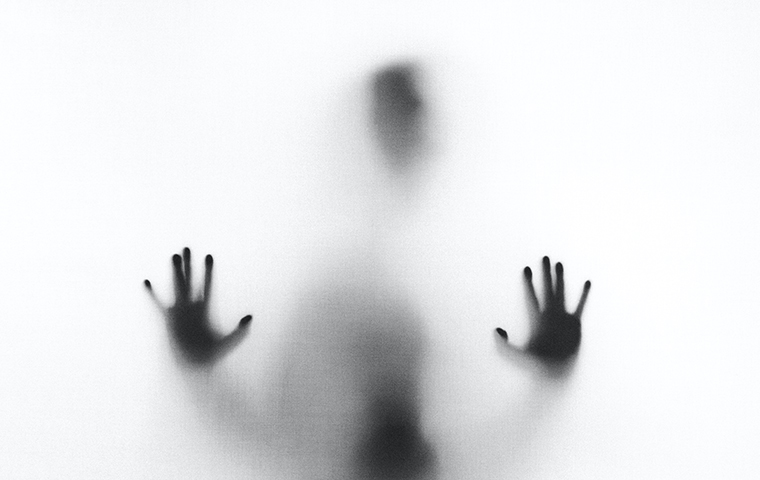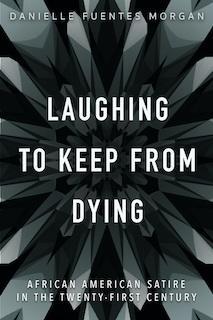
America’s Haunted House
Through her scholarship, Assistant Professor Danielle Morgan explores how movies like “Get Out” address the horrifying reality of racism.
Halloween weekend is almost here, and like most everyone in COVID-19 lockdown mode, there’s a good chance you’re going to be frightfully bored.
Time to stream some favorite horror flicks.
For Santa Clara Assistant Professor Danielle Morgan, who focuses much of her research on analyzing the intersection of horror and satire, a movie like “Get Out” not only provides nail-biting entertainment, it offers a new way to look at the world around us. Especially now.
The bizarre story about a Black boyfriend lured into meeting his white girlfriend’s parents builds from its first spine-chilling scene of a young Black man lost in a white neighborhood, to its nightmarish medical/science conclusion, delivering a deeply disturbing message about racism in America.
“It’s a genuinely unsettling psychological horror film,” says Morgan. "Its centering of racism as horror, and contemporary racism as horror, is particularly a reason to watch it."
As she writes in her new book, “Laughing To Keep From Dying: African American Satire in the Twenty-First Century,” director Jordan Peele's brilliant 2017 woke social thriller is also a critical new direction for satire.
Which is among the reasons that Morgan, a pop-culture and horror-film fan, includes the award-winning “Get Out” in her SCU course on African-American comedy, though some students might look at her quizzically, as if to say, “That Jordan Peele movie? A comedy?”
An understandable point of confusion, as Morgan clarifies.

Danielle Morgan
“Jordan Peele, when he was on ‘Key & Peele,’ often did horror comedy sketches, a number of sketches about the apocalypse, or zombies, or vampires—things that are supposed to inspire fear in us, and make them seem sort of comedic,” she says. “So it’s this question I pose to students: Where is the line between horror and comedy?”
The answer, as Morgan suggests, lies in our emotional and uncontrollable reactions to any number of scenes in “Get Out,” from a best friend’s outrageous warnings not to meet the parents, to whether or not we laugh nervously at the tense, dinnertime conversation the boyfriend Chris confronts soon after arriving at his girlfriend Rose’s home, or feel repulsed by it.
As Morgan says: “The foundational pieces of horror and comedy are the same; it’s the sort of subversion of our expectations...so comedians and horror aficionados are doing the same sorts of things.”
The movie’s cringe-worthy microaggressions continue throughout, from the hip, liberal dad continually calling Chris “my man,” to Rose’s drunken, pushy brother challenging Chris to a wrestling match, noting how Chris’ “frame and genetic makeup”—if only he’d practice—would make him a “beast” of an athlete.
During a large party at the home the next day, Chris—among a handful of Black attendees—is being curiously scrutinized by the guests, like a piece of property. Meanwhile, the family’s Black domestic staff seems oddly detached from reality.
That “Get Out” at times amuses, but mostly rattles, with its eerie storyline and final, devastating societal punch, is among the reasons Morgan believes Black comedians like Chris Rock and Dave Chappelle have been stepping away from comedy of late, and veering into the horror genre.
“There are a lot of comedians who are saying, ‘Maybe comedies are not the best genre right now to get across my point,’” she observes. Or, as one of her students put it to her in the aftermath of George Floyd’s murder by police and the subsequent Black Lives Matter protests: “Maybe comedians are saying, ‘I don’t have time to make a joke and hope you’ll get it.’”

The cover of Morgan's new book.
The film, she notes, began taking shape during the Obama presidency, when Peele was already recognizing the sense of unease and racial tensions surfacing in the U.S.
Part of that derived from the antagonism by many, including elected officials, toward America’s first Black President. By July 2013, it expanded after the acquittal of George Zimmerman in the killing of Trayvon Martin, a Black Florida teen, launching the Black Lives Matter movement that went on to become nationally recognized following the deaths of other African-Americans, often at the hands of police.
In the movie, Peele reminds audiences of those often perilous encounters. After the car Rose is driving to her upstate New York home hits a deer sprinting across the road, a police officer arrives, pointedly demanding Chris’s license and identification—even though he is the passenger.
“The way “Get Out” is very overt and clear is the fact that racism is not just located in the South, or located with the uneducated, or the ignorant,” says Morgan. “These aren’t snarling racists flying Confederate flags.”
Instead, the movie explores racism in a more subtle setting among chillingly charismatic, educated, white Northern liberals—the kind of people audiences don’t see portrayed as frequently, she says, because it’s a much more complicated story to tell.
The movie’s depictions of the oppression that people of color still suffer in the 21st century, and its monstrous conclusion, make “Get Out” one of Morgan’s all-time horror film favorites.
It’s why she recommends watching the picture not just for Halloween, but before Election Day on Tuesday. As she points out, “It fits together really nicely."
Photo courtesy Unsplash